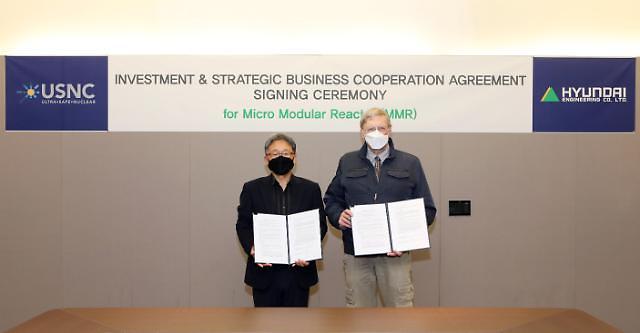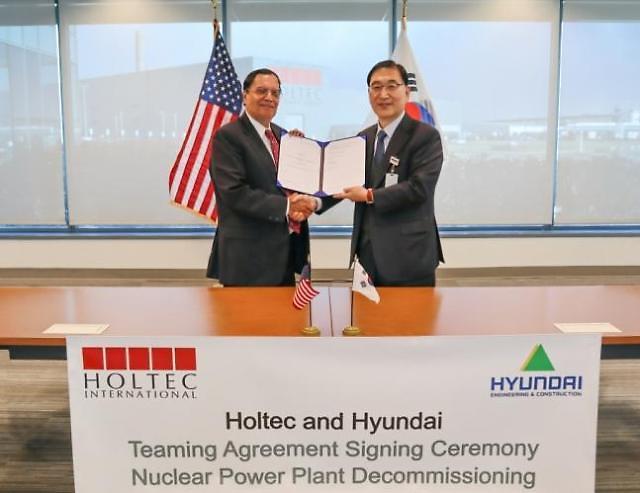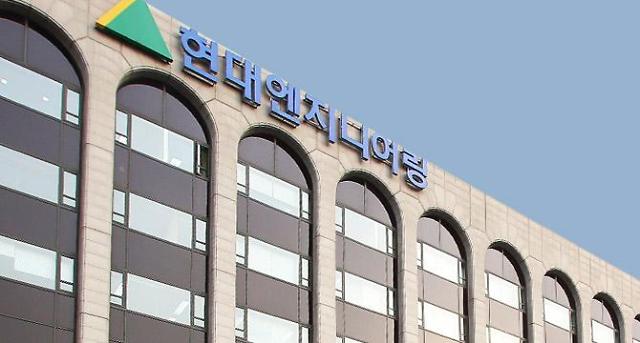
[Courtesy of SK Inc. ]
Small modular reactors (SMRs), which have been studied to address the limitations of traditional light-water reactors, allow for less on-site construction, increased containment efficiency, and enhanced safety. TerraPower develops a class of nuclear fast reactors called the traveling wave reactor (TWR). One of TerraPower's primary investors is Bill Gates.
SK Group Chairman hey Tae-won has pledged massive investments in eco-friendly projects. "We are considering various measures for net zero since last year, and SMR is also one of the targets of our investment review," an SK official said on condition of anonymity. "The (investment) target, size, and subject are not confirmed yet." Net zero means cutting greenhouse gas emissions to as close to zero as possible, with any remaining emissions re-absorbed from the atmosphere.
The major benefit of TWR is high fuel utilization in a manner that does not require nuclear reprocessing and could eventually eliminate the need to enrich uranium. The reactor could be buried below ground, where it could run for an estimated 100 years. In June 2021, TerraPower and PacifiCorp announced plans to build a sodium fast reactor (Natrium) that combines a molten sodium reactor with a molten salt energy storage system.
The state-run Korea Atomic Energy Research Institute (KAERI) has partnered with Samsung Heavy Industries to develop a small carbon-free fission reactor based on molten salt that would be used for ships and floating nuclear power plants. Molten salt reactors (MSRs) can reduce expensive containment structures, eliminate hydrogen as a source of explosion risks, and do not produce radioactive fission gases.
Copyright ⓒ Aju Press All rights reserved.




View more comments